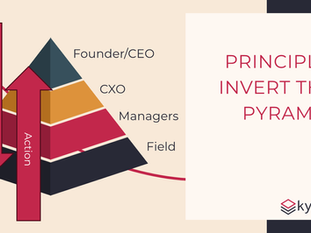
To help dispel the fog of the holiday season, I’ve been attending a few networking and learning events. When I introduce myself as a fractional sales leader, I often get asked “What’s that exactly? Are you a consultant? An advisor? Isn’t that just a fancy name for part-time?” Yes and no – read on!
A fractional leader is an experienced individual who works for a company in a senior role on a “fit for purpose” basis. Let’s break it down!
The purpose it is fit for is providing expertise and leadership for companies that can’t afford/don’t need that individual on a full-time basis. Your typical start-tup, for example, doesn’t really need a full-time CxO, so going fractional is getting only what they need and not more
Fractional leaders are not consultants – they behave and should be treated as employees of the company they work for. They don’t just point to problems and build blueprints (sorry my consultant friends, I know you do more!), they lead teams and affect change. They are employees, they’re just not around all the time
Fractional leaders are not part-timers – yes they spend a faction of their time at any one company, but they’re different than part-time workers in that their scope is not as well-defined. Fractional work applies when the problems being tackled are complex/ill-defined
Fractional leaders are not contractors – contract work tends to be limited in time and scope. Fractional work is more fluid, with fractional leaders tackling whatever problems thrown at them, and it and tends to be long-term, usually a year or longer, and are often are called in for critical events
Does this make sense? What issues do you foresee in using such a model?


















